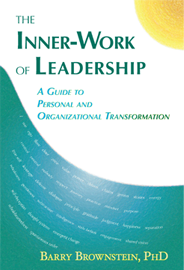The National Association for Business Economics released a survey this week reporting that “more than 90 percent of economists predict the recession will end this year.” On that forecast, I would not bet any money that I could not afford to lose.
Their cautious but optimistic forecast is in line with those of government officials, such as Ben Bernanke, and it reflects two biases. First is the well-known herding mechanism that drives forecasters. If you issue a forecast that is in line with the forecasts of others but the consensus is wrong, who can blame you? There is safety in numbers. All who are wrong exclaim, “We didn’t anticipate….” The second bias comes from the belief that surely what Obama, Bernanke, and Geithner are doing will have some effect.
In her book A Mind of Its Own, Cordelia Fine describes a classic social psychology experiment about the delusion of control:
Take, for example, a task in which volunteers are asked to try and get a light to come on by pressing a button. Volunteers are told that the button might control the light; in fact, the light comes on and off randomly and its illumination is entirely unrelated to what the volunteer does with the button. Yet although the volunteers have actually no control over the light, their perception is very different. They experience the illusion of control, as it is known, and claim to have an influence over the light. As subjects for further vanity, people rate their personal control more highly if the light happens to come on more often. In other words, we are even more susceptible to the self flattering impression that we are responsible for how things have turned out when they turn out well.
Let’s apply this to our seemingly bottomless—for now—faith in the capacity of Obama, Geithner, and Bernanke to control the economy. Obama, Geithner, and Bernanke tell the public that there are light switches in their offices and that they know how to turn them on. The three of them sit by their switches, frantically trying to get the lights to come on. And when the lights happen to come on—in other words, when there is occasional good news about the economy—the public dutifully applauds and says on cue, “Aren’t we fortunate that in our time of troubles we have found such talented individuals who know how to turn on the lights.”
The only problem is that—to the extent they have any control at all—their light switches are not connected to a healthy economy but rather to mechanisms that causes further harm to the economy.
Notice the title of my essay is “The Delusion of Control” and not the more genteel “The Illusion of Control.” David Gershaw explains the difference between illusion and delusion.
An illusion is a perceptual disturbance, while a delusion is a belief disturbance….a delusion is a deeply held false belief that is maintained—even when other information contradicts the belief. The contradictory information is either ignored completely or discounted in some way.
In other words, some are under delusions about how the economy works. They believe—against all evidence—that the cure for too much debt is even more debt and that the cure for a failed business decision is a bailout. They are not suffering from illusions; they are deluded.
Back to the forecast by the business economists. An astute observer, Bill Bonner, recently wrote:
The private sector is not going to begin a new growth period until they’ve paid off, worked out, defaulted on, or shirked a lot of their present debt load. We’ve estimated that they need to get rid of about $20 trillion worth. And that’s going to take time. And a lot of painful decisions by a lot of people. Bad business, investment and spending decisions need to be recognized…and fixed. Debt needs to be reduced.
Do business economists really think that this process—in the face of all the interferences by government—will be completed this year?



They aren’t thinking about the hard choices at all. They are just hoping and cheerleading in an effort to change the increasingly acrimonious social mood, in hopes to reflate the good old times bubble. They don’t want to make those hard choices, and don’t even want to know they exist.
They are willfully choosing delusion.
Tesh,
As Robert Prechter recently put it: “The future has already been mortgaged; it’s time to pay. But there is no money to pay, only more IOUs, which cannot be paid, either.”
Those choosing to be deluded are hoping there is another choice; there isn’t.
Part of the problem is that, for many decades, they have been able to hide or postpone problems until after the next election, which is why they are promoting the false hope of recovery in 2010. Too bad the electorate will not realize that neither branch of the ruling party is willing to make tough choices. Seems there is a lot of delusion going around, eh?
Chris,
Yes, one bubble on top of another; compounding the ultimate misery. Some still haven’t learned–they mock the dire forecasts (one analyst yesterday called these forecasts “urban legends”) and tell us recovery is real.